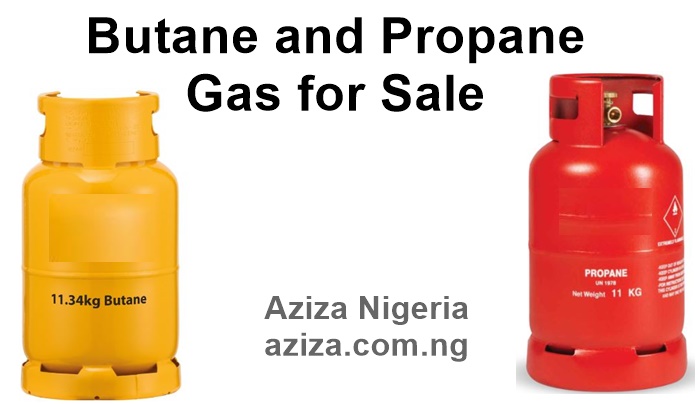Butane and Propane Gas for Sale and Distribution post covered what Butane Gas is, the uses and the difference between Propane and Butane. Feel free to contact us to buy your Butane and Propane Gas.
Butane is a hydrocarbon and a highly flammable, colourless, odourless, a natural gases produced through oil refining and natural gas processing to perform a number of essential activities. It is typically used several commercial and industrial applications such as heating fuel, refrigerant, and in the manufacture of a wide range of products. Butane gas is a prominent member of the Liquefied Petroleum Gas (LPG) family.
Read: Buy Propane Gas
Its versatile nature, coupled with its affordability, renewability, and non-toxic properties, has propelled it to the forefront of energy solutions.
Butane is one of the commonly used propellants in household and industrial aerosols and therefore can be found in numerous aerosol products. However, the packaging of many aerosols products will commonly identify the propellant as ‘hydrocarbon’, not specifically identifying butane.
Difference between Propane and Butane
Butane and propane are hydrocarbon gases belonging to the LPG family. Butane consists of four carbon atoms and ten hydrogen atoms, while propane contains three carbon atoms and eight hydrogen atoms. The variation in their molecular structures results in different physical properties. Butane is a highly flammable gas with a boiling point of approximately -1°C (30°F), making it suitable for use in warmer climates. On the other hand, propane has a lower boiling point of -42°C (-44°F), rendering it ideal for colder environments.
Read: LPG License Requirements
Below you can find the key characteristics and benefits of propane and butane broken down into a table, so you can directly compare your energy usage needs and decide which fuel is better for you:
| Propane | Butane | |
| Characteristics | Low boiling point, stored in larger quantities for residential and commercial use | Higher boiling point, stored in smaller quantities for indoor use residentially or for outdoors, such as camping |
| Boiling Point (when it freezes) |
-42°C | -2°C |
| Best / Ideal for | BBQ’s, patio heaters, LPG gas cooking, heating water, and heating your home | Portable gas heaters and single-burner cooking stoves |
| Gas Bottles Sizes | Up to 47KG | Up to 15KG |
| Carbon Emissions | Reduce your carbon emissions by up to 38% when compared to oil** | Reduce your carbon emissions by up to 38% when compared to oil** |
| Type Of Gas Regulator | pre-set to 37mbar | pre-set at 28-30 mbar |
Butane Usage
Aerosol Spray Cans
Butane is used as a propellant in aerosol cans, only occupying three percent of the mixture. For this reason, aerosol cans can be highly flammable and contain hazard warnings. Carbon dioxide has become a more common propellant over the years, but butane is still present in some mixtures.
Catering
Off-site catering for conferences, weddings, corporate events, and celebrations relies on butane gas burners similar to camping stoves. Portable butane gas burners are more ideal for cooking than for warming slowly. Since the liquid gas heats so quickly, caterers can heat up food to the desired temperature in half the time.
Read: How to Start Cooking Gas Business in Nigeria
Propane Usages
Gas Ranges
Preferred for commercial kitchens, gas ranges fire up a lot of benefits for professional and amateur chefs. Propane-powered ranges heat up and cool down quickly, which is ideal for necessary temperature changes, and they do not require gas lines to function, as tanks will work just fine.
Hot Air Balloons
Liquid propane is the gas that fuels hot air balloons for lift off. The liquid propane itself does not fill the balloon but heats the air inside enough to raise the entire gondola. Propane to heat the air is typically more cost-effective than lifting gases like helium and the formerly used hydrogen.
Safety Practices and Precautions
LPG is highly flammable and potentially hazardous. Adhering to safety precautions is paramount:
Regular Inspection: Regularly inspect cylinders for signs of damage, rust, or corrosion. Replace damaged cylinders promptly.
No DIY Repairs: Never attempt to repair a damaged cylinder yourself. Contact a professional for repairs or replacement.
Read: NCEC Certificate Registration & Requirements
Use Proper Regulators: Ensure that you are using the correct regulator for your cylinder. Incorrect regulators can lead to gas leaks and accidents.
Leak Detection: Familiarize yourself with the smell of LPG (it has a distinctive odor) and learn how to detect gas leaks. If you suspect a leak, turn off the cylinder and ventilate the area immediately. Do not use electrical switches or devices that could cause a spark.
Fire Safety: Keep a fire extinguisher in the vicinity of the cylinder storage area. Additionally, educate household members about fire safety measures.
Purchase Propane or Butane Gas in Nigeria
Contact Aziza Nigeria for purchase your Butane or Propane gas at affordable prices in Nigeria. We based in Port Harcourt, Nigeria.

